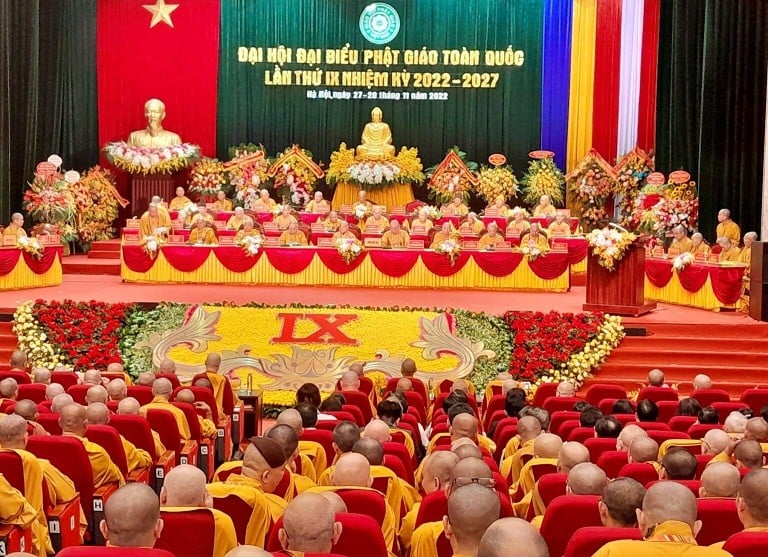 |
The 9th National Congress of Buddhist Delegates, term 2022-2027.
Ensuring freedom of belief and religion is one of the fundamental and important contents in ensuring human rights and is expressed by the Party and State through policies and guidelines on belief and religion in the process of building and developing the country, stipulated in the Constitutions and most recently in Article 24 of the 2013 Constitution, “1. Everyone has the right to freedom of belief and religion, to follow or not to follow any religion. Religions are equal before the law. 2. The State respects and protects the right to freedom of belief and religion. 3. No one is allowed to violate freedom of belief and religion or take advantage of belief and religion to violate the law”. On that basis, human rights continue to be legalized and enforced throughout society.Step forward for freedom of belief and religion for all people
Vietnam's national renewal began in 1986, and in 1990, the renewal of religious work was marked by Resolution No. 24/NQ-TW, dated October 16, 1990 of the Politburo on "Strengthening religious work in the new situation", clearly expressing the viewpoint of ensuring human rights, including freedom of belief and religion. "Belief and religion are spiritual needs of a part of the people", affirming the people's right to choose and believe in beliefs and religions and affirming that it is a normal need of the people. To ensure freedom of belief and religion, the Resolution requires relevant law enforcement agencies to "simultaneously pay attention to reasonably resolving the people's religious needs". These are very important viewpoints that lay the foundation for promoting the implementation of people's freedom of belief and religion in social life. The institutionalization of the Party's viewpoints on beliefs and religions has been given attention, and the later stages have always been better than the previous stages in terms of both content and legal value. Institutionalizing the Party's viewpoints in Resolution No. 24, the State issued Decree No. 69/HDBT, dated March 21, 1991 of the Council of Ministers regulating religious activities, creating a legal corridor for religious activities and managing religious activities in the early years of renovation; 9 years later, the Government issued Decree No. 26/1999/ND-CP on religious activities to replace Decree No. 69. The contents of the Decree are both the legal basis for individuals and religious organizations to organize activities according to regulations and the basis for competent agencies to guide and manage religious activities uniformly nationwide. After 13 years of implementing Resolution No. 24 and on the momentum of the achievements of national renewal at the 7th Central Conference of the 9th term, the Party Central Committee issued Resolution No. 25-NQ/2003/TW, dated March 12, 2003, on religious work, replacing Resolution No. 24. The spirit of Resolution No. 25 is to continue to improve and perfect the viewpoints on ensuring human rights in the field of belief and religion by reiterating and deepening the viewpoint: "belief and religion are the spiritual needs of a part of the people that are and will exist with the nation in the process of building socialism in our country". With this viewpoint, the right to freedom of belief and religion is raised to a new awareness when affirming that this right continues to be guaranteed along with the existence and development of the Vietnamese nation. Resolution No. 25 was issued, institutionalization was raised to a new level. On June 18, 2004, the National Assembly Standing Committee issued the Ordinance on Belief and Religion, continuing to create a legal corridor for religious activities in accordance with the law, responding to the people's freedom of belief and religion, making an important contribution to ensuring human rights in Vietnam. In the 2013 Constitution, Vietnam continued to make new progress in expanding freedom of belief and religion, the phrase "citizens' rights" was replaced by "human rights". Affirming that human rights are natural rights, the State recognizes, respects and commits to ensuring them according to international conventions of which Vietnam is a member. In the field of belief and religion, Article 70 of the 1992 Constitution was replaced by Article 24 in the 2013 Constitution, with the content: "Citizens" was replaced by "Everyone" has the right to freedom of belief and religion; The places of worship of beliefs and religions protected by law are replaced by the State's respect and protection. Institutionalizing the 2013 Constitution and the need to adjust the law on religion in the context of international integration, ensuring better and better human rights in the field of beliefs and religions, on November 18, 2016, at the 2nd session, the 14th National Assembly passed the Law on Beliefs and Religions to replace the Ordinance on Beliefs and Religions. The Law and Decree simultaneously took effect from January 1, 2018, continuing to create important legal acts to ensure the rights of organizations and individuals in belief and religious activities. Thus, the Law on Beliefs and Religions is the legal document with the highest legal value to date that directly regulates belief and religious activities; is a legal document that continues to specify policies and guidelines on beliefs and religions according to Resolution No. 25, the actual situation of the country and specifies human rights in the 2013 Constitution - that is, the right to freedom of belief and religion of everyone.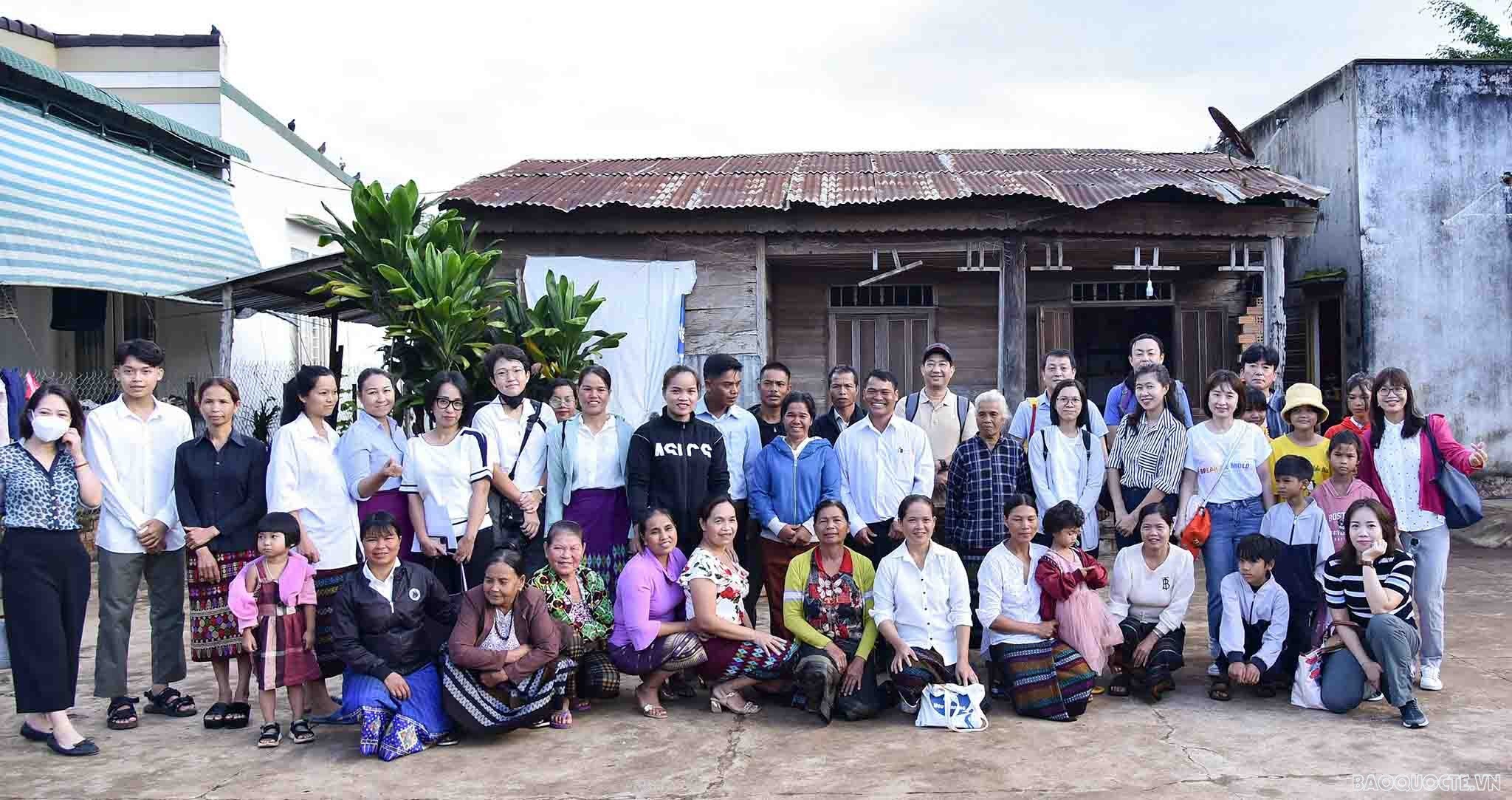 |
A group of foreign reporters visited the religious activities of Dak Lak Catholics. (Photo: Nguyen Hong) Religion participates in social activities, accompanying the nation
Vietnam is a country with diverse beliefs and religions, it is estimated that about 95% of the Vietnamese population has a religious life. To ensure the rights and obligations of religions, during the renovation period, Vietnam has carried out the granting of registration of activities and recognition of organizations for qualified religions. By November 2023, Vietnam had 40 organizations belonging to 16 religions recognized and granted registration of activities by the State, including: The group imported from abroad includes 9 religions: Buddhism, Catholicism, Protestantism, Islam, Brahmanism, Baha'i, Vietnam Seventh-day Adventist Church, The Church of Jesus Christ of Latter-day Saints, Minh Su religion. The indigenous group includes 7 religions: Cao Dai, Hoa Hao Buddhism, Tu An Hieu Nghia Buddhist Association, Hieu Nghia Ta Lon Buddhist Association, Buu Son Ky Huong, Tinh Do Cu Si Buddhist Association of Vietnam, Minh Ly religion Tam Tong temple. The total number of religious followers is currently about 26.5 million, accounting for 27% of the population; over 54,000 dignitaries; over 135,000 functionaries; over 29,000 places of worship; thousands of points and groups are granted registration for concentrated religious activities. Religious organizations recognized and granted registration for activities by the State build and implement a religious practice orientation imbued with religious humanity and responsibility to the country. Vietnam's achievements in ensuring freedom of belief and religion have promoted and created momentum for dignitaries, functionaries, monks and followers of religious organizations to build and implement a religious practice orientation in solidarity with the nation. Establishing a close relationship between the State and religious organizations, creating mutual understanding and trust between officials at all levels and religious dignitaries, functionaries and practitioners, creating consensus in implementing religious and social policies. Through religious work, individuals and religious organizations have been mobilized to actively participate in local patriotic emulation movements, carry out social security activities well, contribute to the local government to take care of a group of people in difficult circumstances, directly contribute to reducing the burden on the country. In the field of education . The whole country has 270 kindergartens, about 2,000 independent kindergarten groups and classes established by religious individuals, mobilizing about 125,594 children to school/class, accounting for 3.06% of the total number of children attending kindergarten nationwide. Religious organizations have established 12 vocational training facilities nationwide, providing college, intermediate and short-term vocational training for thousands of people. In the field of health and social protection. With the spirit of charity, religions clearly show their influence through free medical examination and treatment, free medicine distribution, opening charity clinics, building an ambulance system to transport sick people. Raising awareness among followers in organizing a hygienic life, disease prevention, going to the hospital when sick, taking medicine instead of practicing superstitious activities, advising people to eliminate backward customs that affect health. Many religious organizations have coordinated to organize mobile medical examination and treatment teams, free medicine distribution to the poor and ethnic minority people. The whole country currently has 113 social assistance facilities belonging to religious organizations that have been granted operating licenses by the government, caring for and nurturing 11,800 people in difficult circumstances. In the "Day for the Poor" campaign, the religious "Fund for the Poor" has actively participated with a total budget of thousands of billions of VND each year, especially during the years of the Covid-19 pandemic. Religious dignitaries, officials, monks, and followers of religious organizations actively participate in the National Assembly, People's Councils at all levels, and become members of socio-political organizations, thereby promoting the role of the religious sector in building and developing the country, building a healthy social environment in areas with religious compatriots, preventing the exploitation and incitement of religion to divide the nation and religion by bad forces. The achievements of Vietnam's national renewal are always associated with the guarantee of human rights, including the right to freedom of belief and religion. This right is not only stipulated in important documents of the Party and State but also vividly demonstrated in religious life. Religious organizations are guaranteed to operate in accordance with the provisions of law and charters and regulations, and develop positive religious practices; and are given favorable conditions in social security activities. The life of belief and religion is undergoing profound changes, religions are increasing in number and scale of activities both domestically and internationally. The majority of religious dignitaries and followers believe in the leadership of the Party, support the cause of national renewal, and make important contributions to the process of building and developing the country. However, to better ensure human rights in the field of belief and religion requires the active and serious participation of everyone, individuals, religious organizations, and management agencies at all levels. It is extremely necessary in the current situation to proactively understand and research to have full awareness from policies and guidelines to practice and proactively implement them correctly, enhance responsibility and obligations to protect freedom of belief and religion.

![[Photo] Prime Minister Pham Minh Chinh launched a peak emulation campaign to achieve achievements in celebration of the 14th National Party Congress](https://vphoto.vietnam.vn/thumb/1200x675/vietnam/resource/IMAGE/2025/10/5/8869ec5cdbc740f58fbf2ae73f065076)
![[Photo] Prime Minister Pham Minh Chinh chairs the Government's online conference with localities](https://vphoto.vietnam.vn/thumb/1200x675/vietnam/resource/IMAGE/2025/10/5/264793cfb4404c63a701d235ff43e1bd)




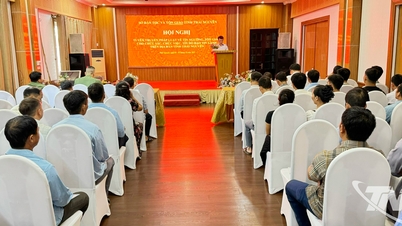



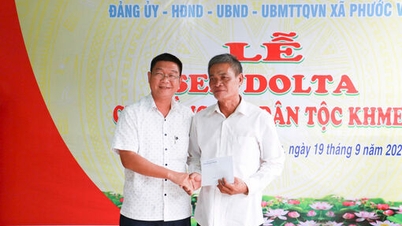



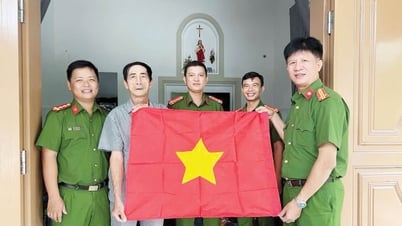

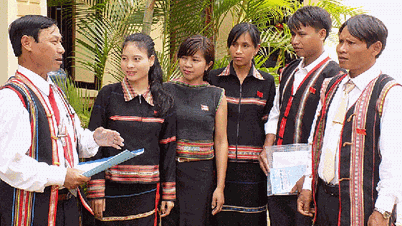

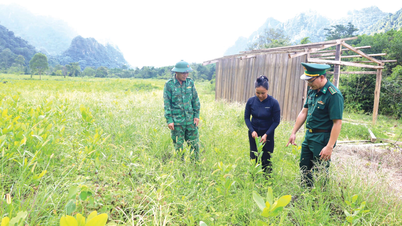

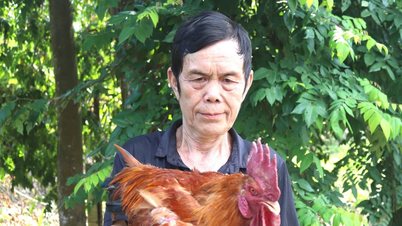

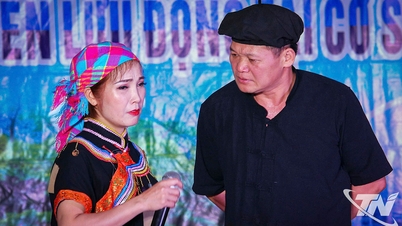
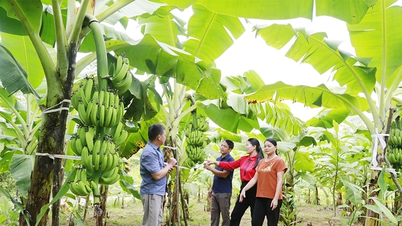

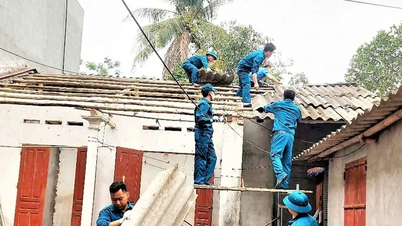
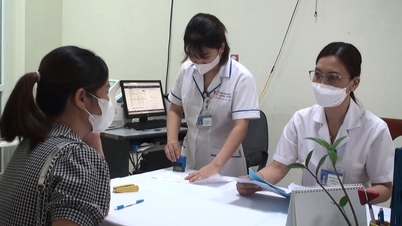





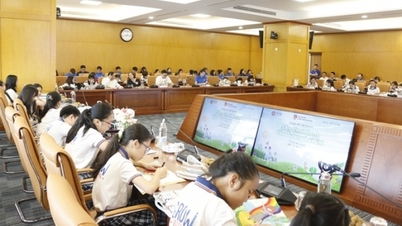
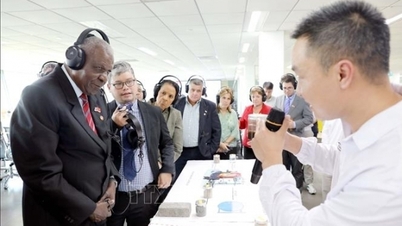
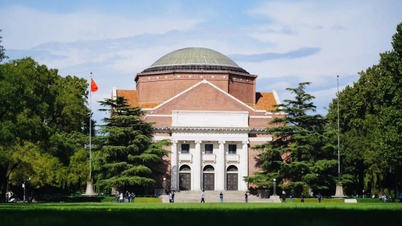

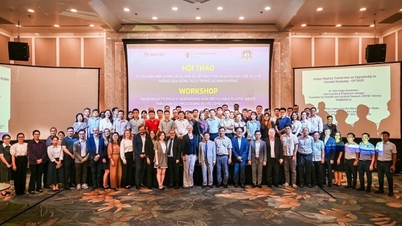
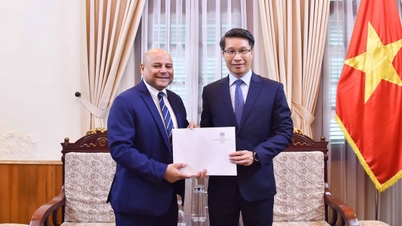



























![[VIDEO] Summary of Petrovietnam's 50th Anniversary Ceremony](https://vphoto.vietnam.vn/thumb/402x226/vietnam/resource/IMAGE/2025/10/4/abe133bdb8114793a16d4fe3e5bd0f12)

![[VIDEO] GENERAL SECRETARY TO LAM AWARDS PETROVIETNAM 8 GOLDEN WORDS: "PIONEER - EXCELLENT - SUSTAINABLE - GLOBAL"](https://vphoto.vietnam.vn/thumb/402x226/vietnam/resource/IMAGE/2025/7/23/c2fdb48863e846cfa9fb8e6ea9cf44e7)














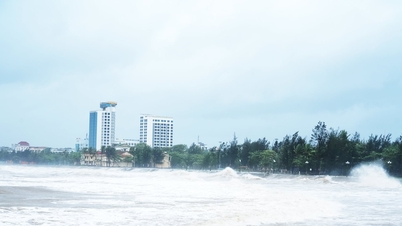



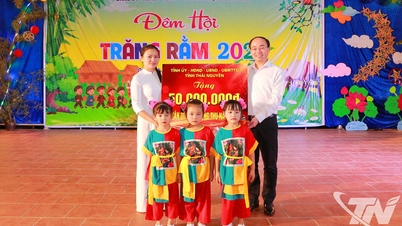

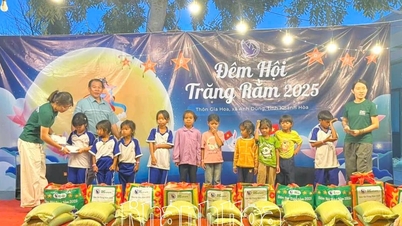

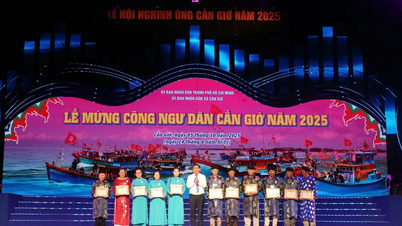













Comment (0)